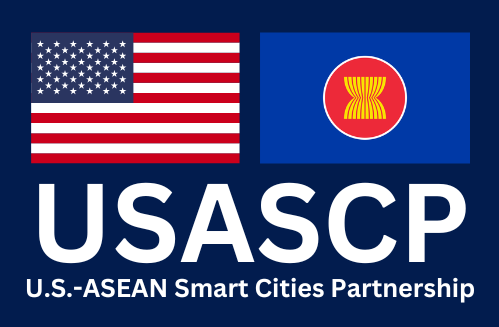ASEAN Sustainable Urbanization Strategy
By the ASEAN Secretariat The strategy consists of this report as well as two accompanying toolkits that will assist local governments in ASEAN to advance sustainable urbanization in their cities. Read the Full Sustainable Urbanization Strategy
Smart Grid Interoperability Standards Adoption in Southeast Asia
An International Trade Association (ITA)-commissioned study by the Electric Power Research Institute (EPRI) assesses the landscape for clean energy standards adoption in Indonesia, Malaysia, Philippines, Thailand, and Vietnam.
How E-labels Can Support Trade and Innovation in ICT, Medical, and Other Products
Displaying regulatory and other product information electronically is more practical than using small, confusing physical labels. But countries need to align their approaches to “e-labels” in order to maximize their benefits and avoid creating a new barrier to trade and innovation.
Air Pollution May Measure Month Report
Air pollution protocol reporting for May Measure Month View Air Pollution Report
Additive Manufacturing
As new manufacturing techniques like Additive Manufacturing (AM) continue to rapidly evolve, the potential benefits for the countries of Southeast Asia, from higher tech jobs and more resilient supply chains to improved health and cheaper, safer manufacturing, could be immeasurable.
Smart Cities – Traffic Management and Privacy
by Charles Strecker While the possibilities of smart cities are great, so too are the tyrannies they can perpetuate. The longterm viability of smart cities thus depends upon the trust and understanding of its inhabitants and their capacity to believe that the great weapon that the smart city may become will not be turned against them.…
Making Smart Cities Meaningful for the Public – Traffic Congestion and Smart Cities
by Connor Carrera In Southeast Asia, traffic has increasingly been an issue, especially with the dramatic economic growth many of the countries have had. There is a disproportionate number of deaths due to road traffic in Southeast Asia. Many of these deaths are due to the very congested and unorganized streets but implementing smart city technology…
U.S.-ASEAN Smart Cities Partnership
by Heather Atherton An initial investment of $10 million was announced to launch the U.S.-ASEAN Smart Cities Partnership (USASCP), a strategic move in lending the private and public sector knowledge of the United States toward implementation of smart technologies in cities belonging to the ASEAN Smart Cities Network (ASCN). The USASCP is committed to improving the…
Smart Cities in Southeast Asia and Pandemic Responses
by Dianna Garzon The use of smart technology has been discussed in recent years for the purpose of establishing or furthering urbanization throughout the world. However, given the present-day circumstances with COVID-19, the application and research towards smart technology is best when coupled with furthering healthcare. Through the effective and innovative application of smart technology in…
Smart Cities – General Introduction and Recommendations
by Hayley Lunsford and Margarita Nunez Many cities across the globe are in the process of becoming “smart”, but many average people are unaware of what that really means. Not only are they unaware of what it means, but they are unaware of the both positive and negative effects it will have on them in everyday life. In…
United States Government Infrastructure Export Tools
By the U.S. Department of Commerce, International Trade Administration This toolkit identifies federal government tools to support American companies as they compete for infrastructure projects abroad, including where they can be applied along the project life cycle. Foreign governments and U.S. companies should use this as a general guide to learn how the U.S. government…
Toolkit for Energy and Infrastructure Projects in the Indo-Pacific Region
By METI, Trade and Economic Cooperation Bureau, Trade Promotion Division This Toolkit is designed to support Japanese companies working with U.S. companies in the energy and/or infrastructure sector in the Indo-Pacific region, and to summarize support tools which can be applicable in accordance with phase and purpose of projects. Read the Full Toolkit for Energy…
 U.S.-ASEAN Smart Cities Partnership
U.S.-ASEAN Smart Cities Partnership

